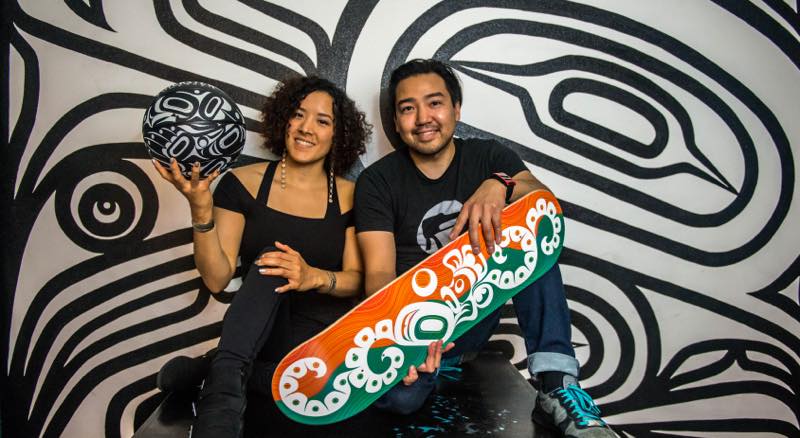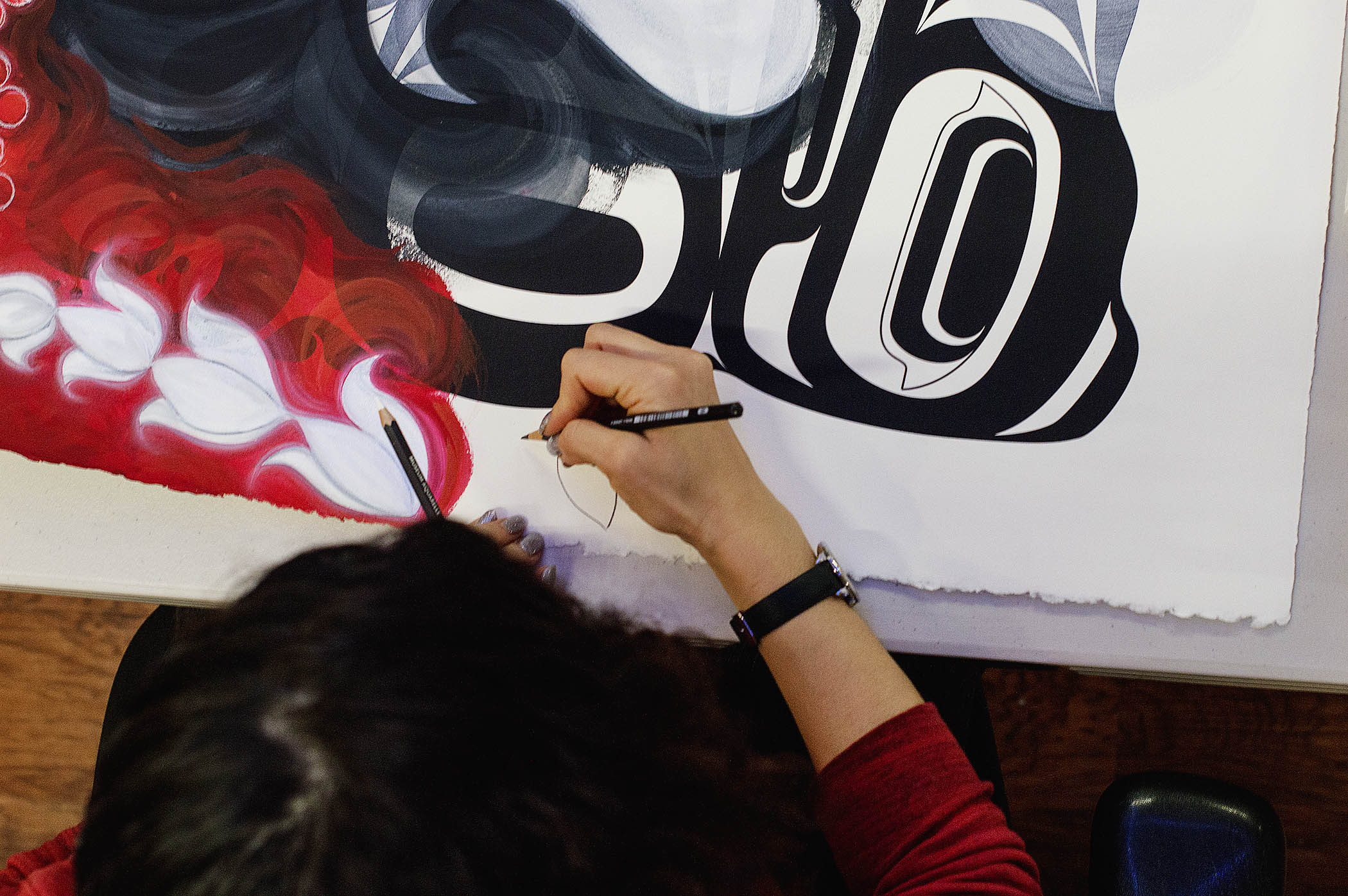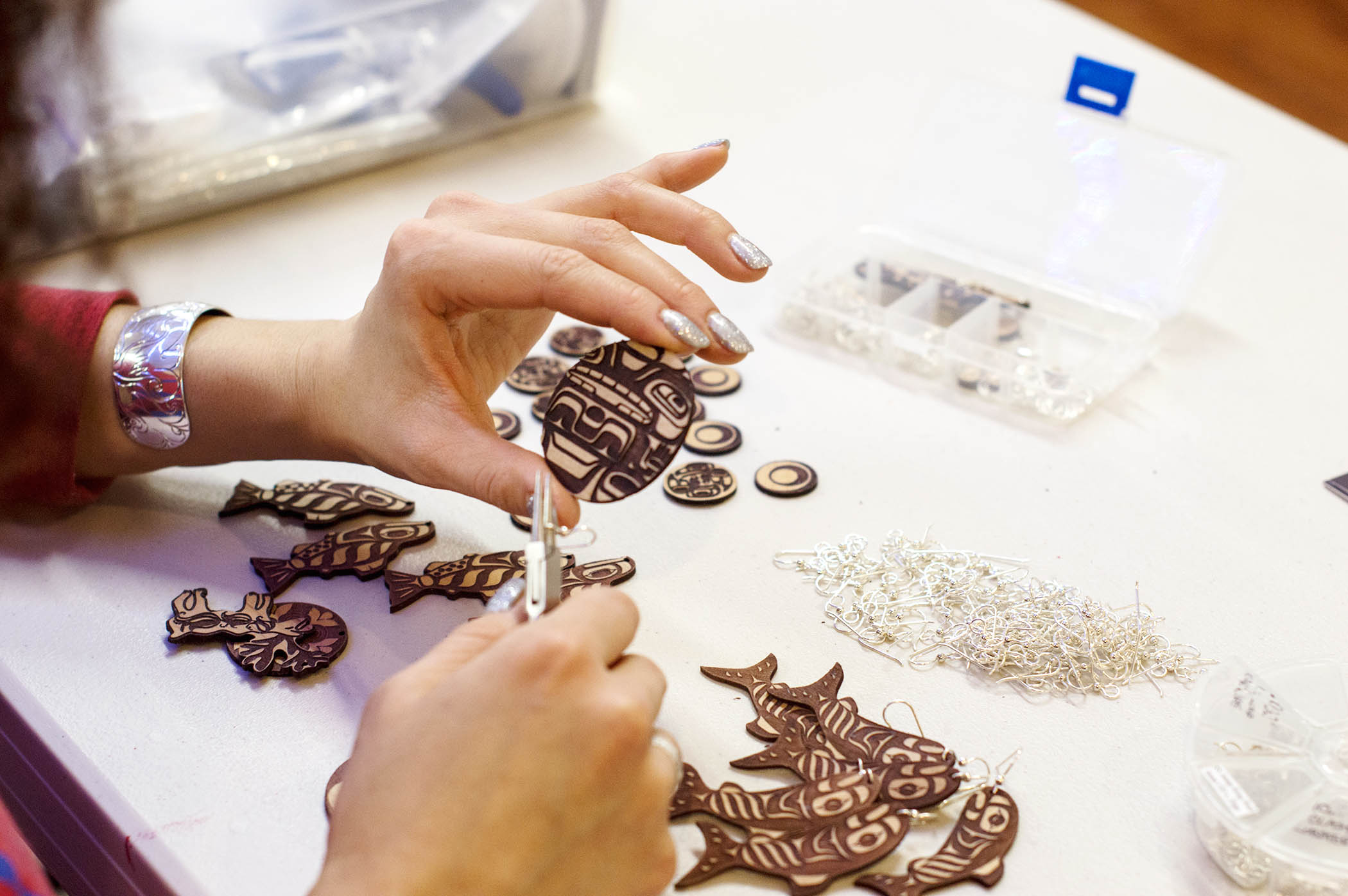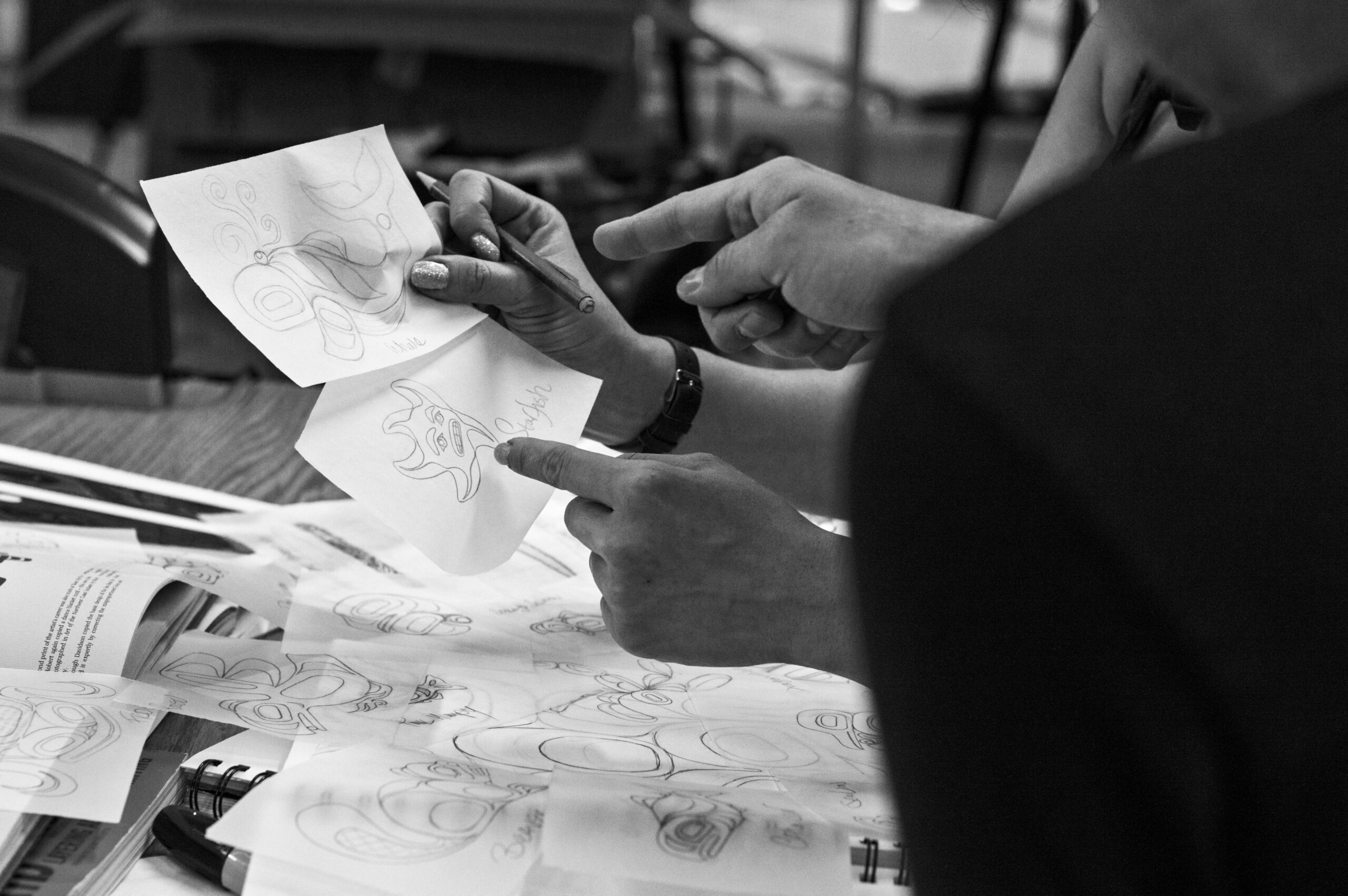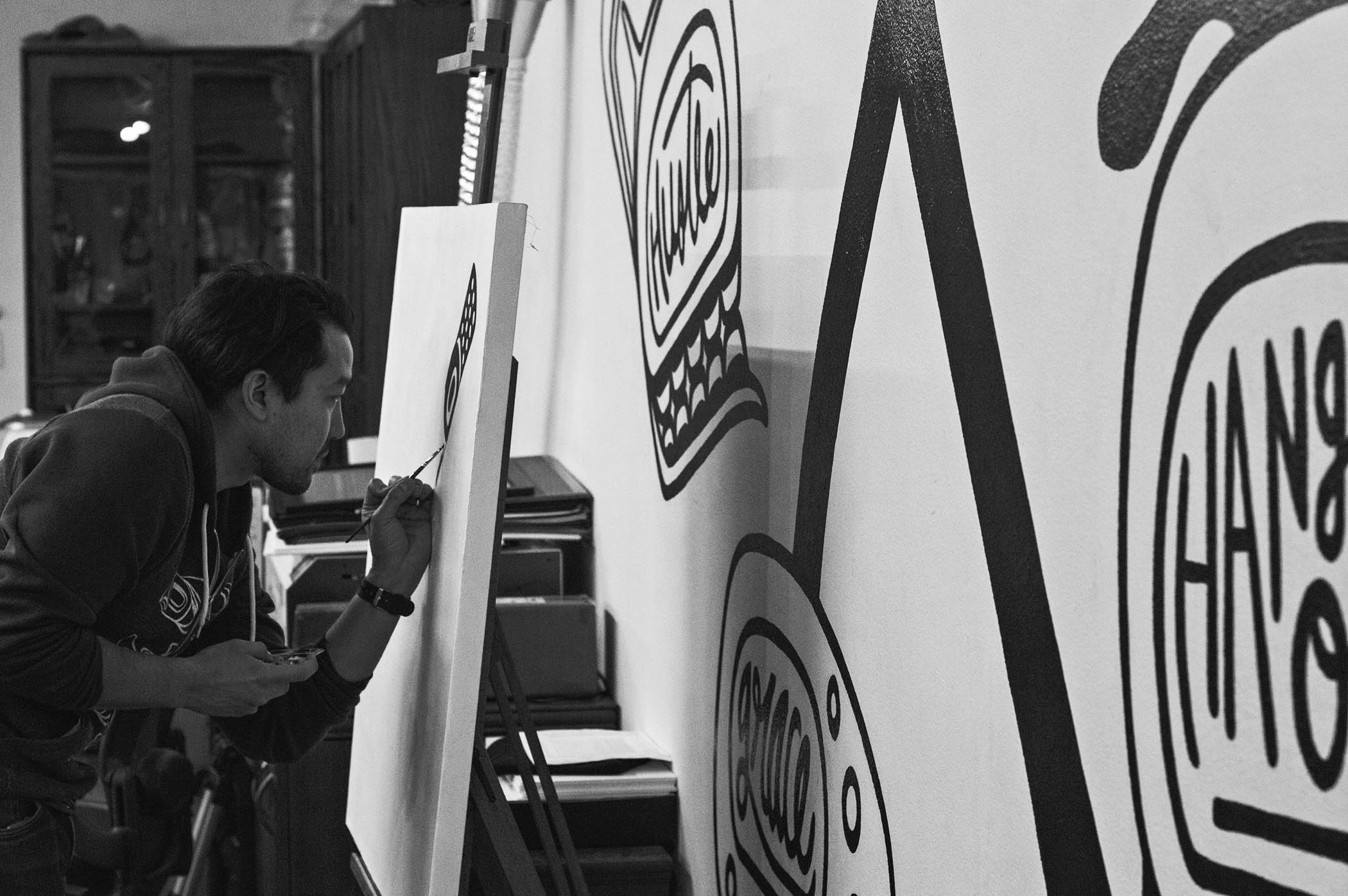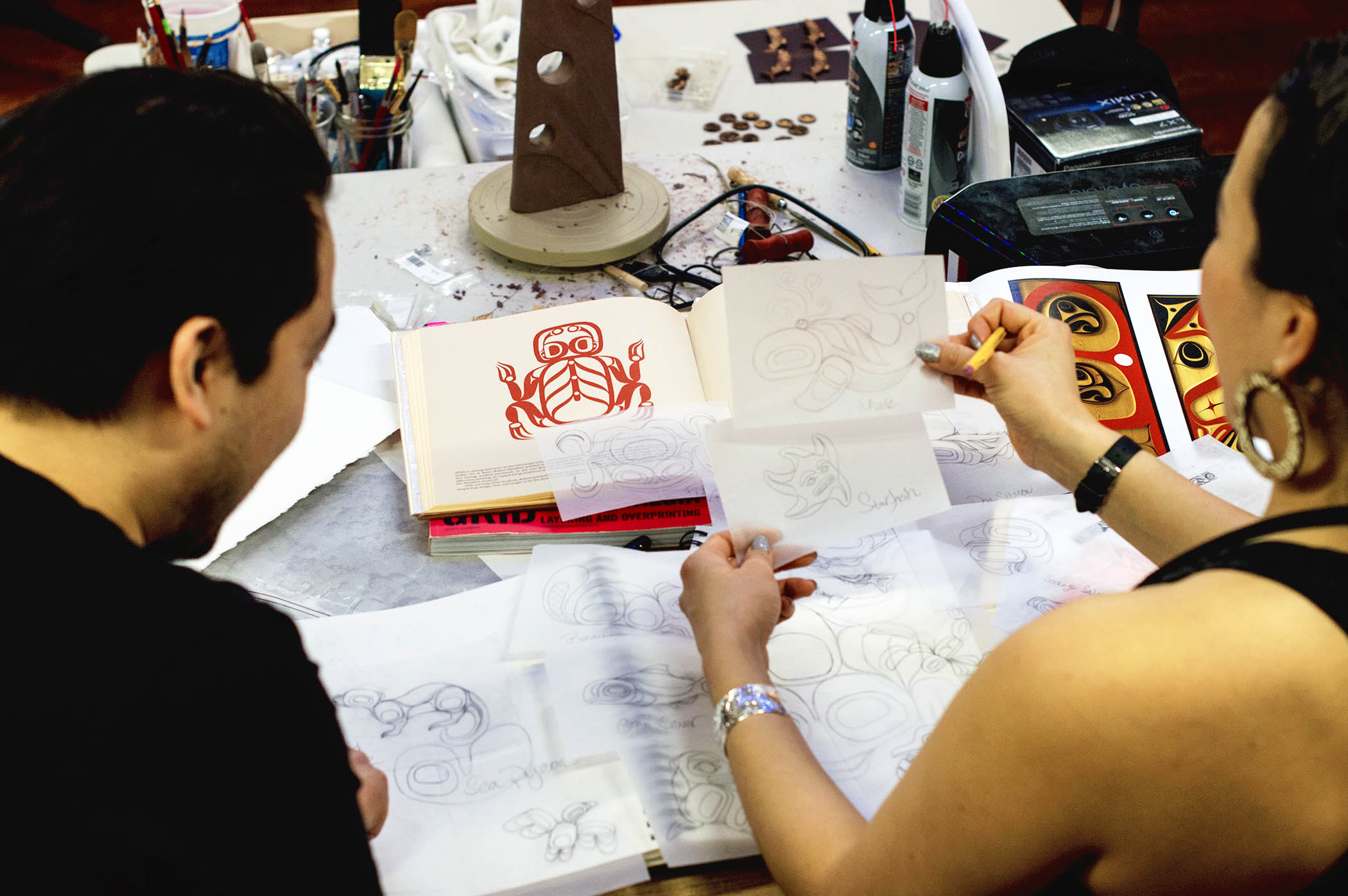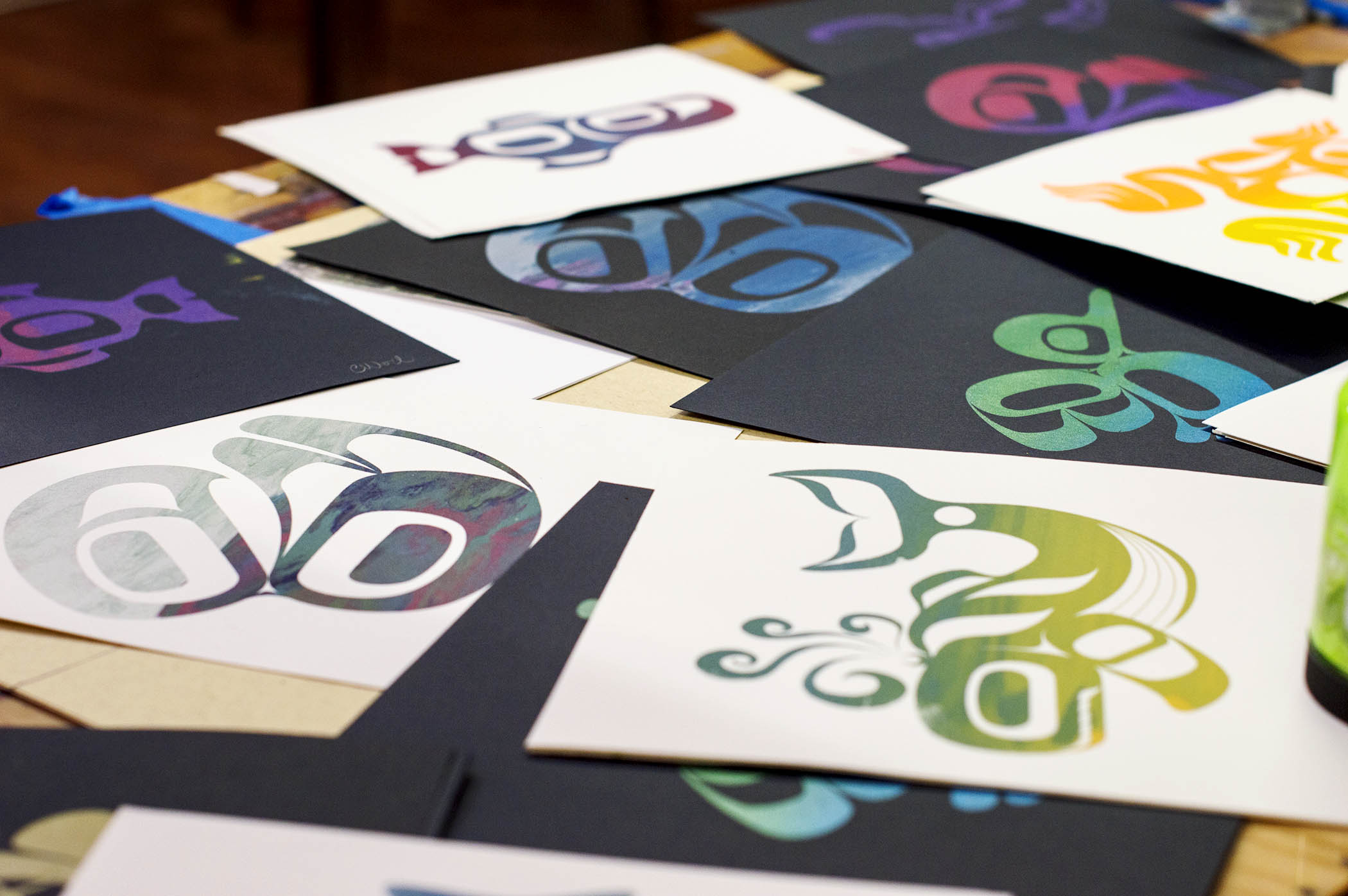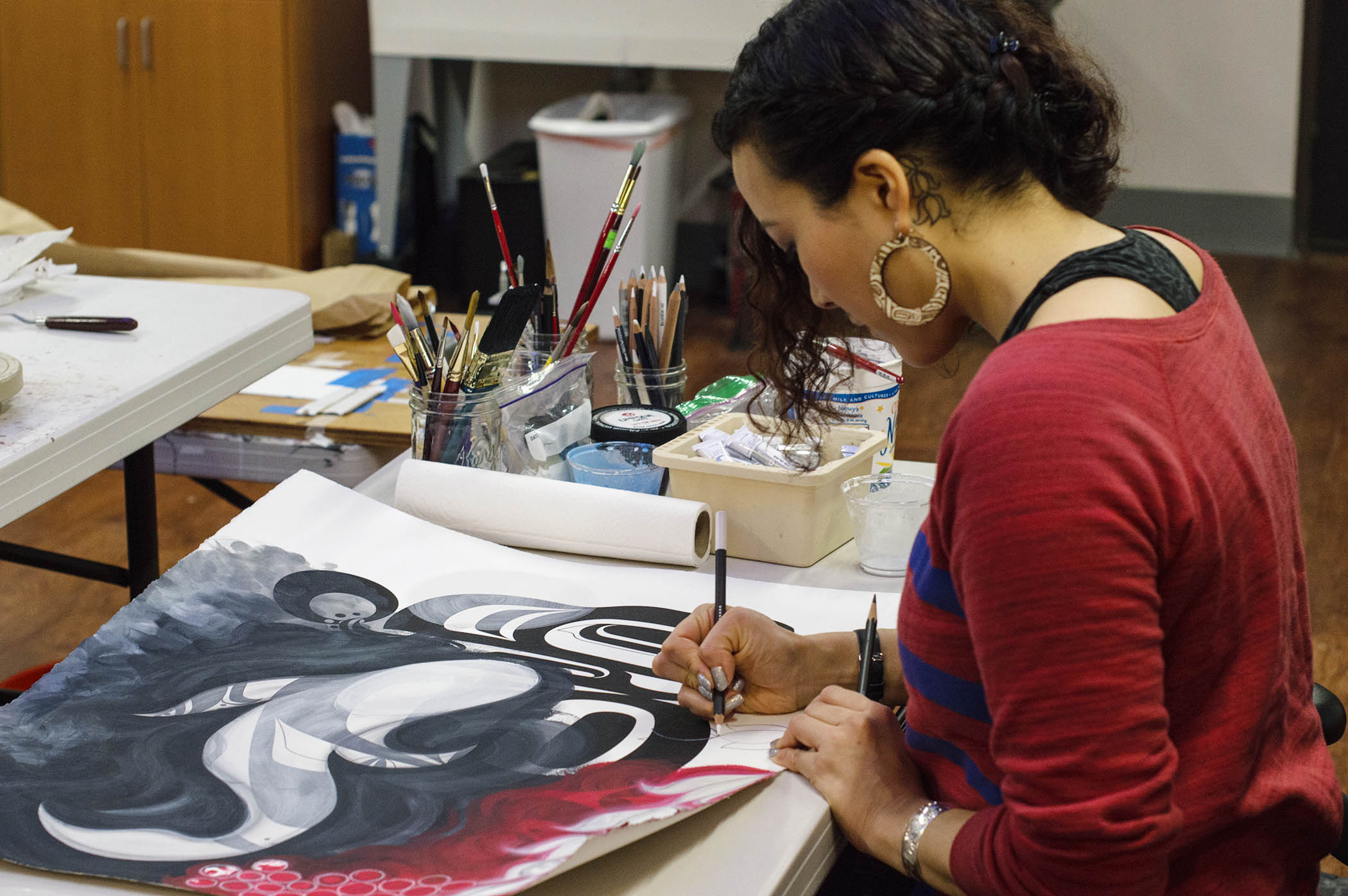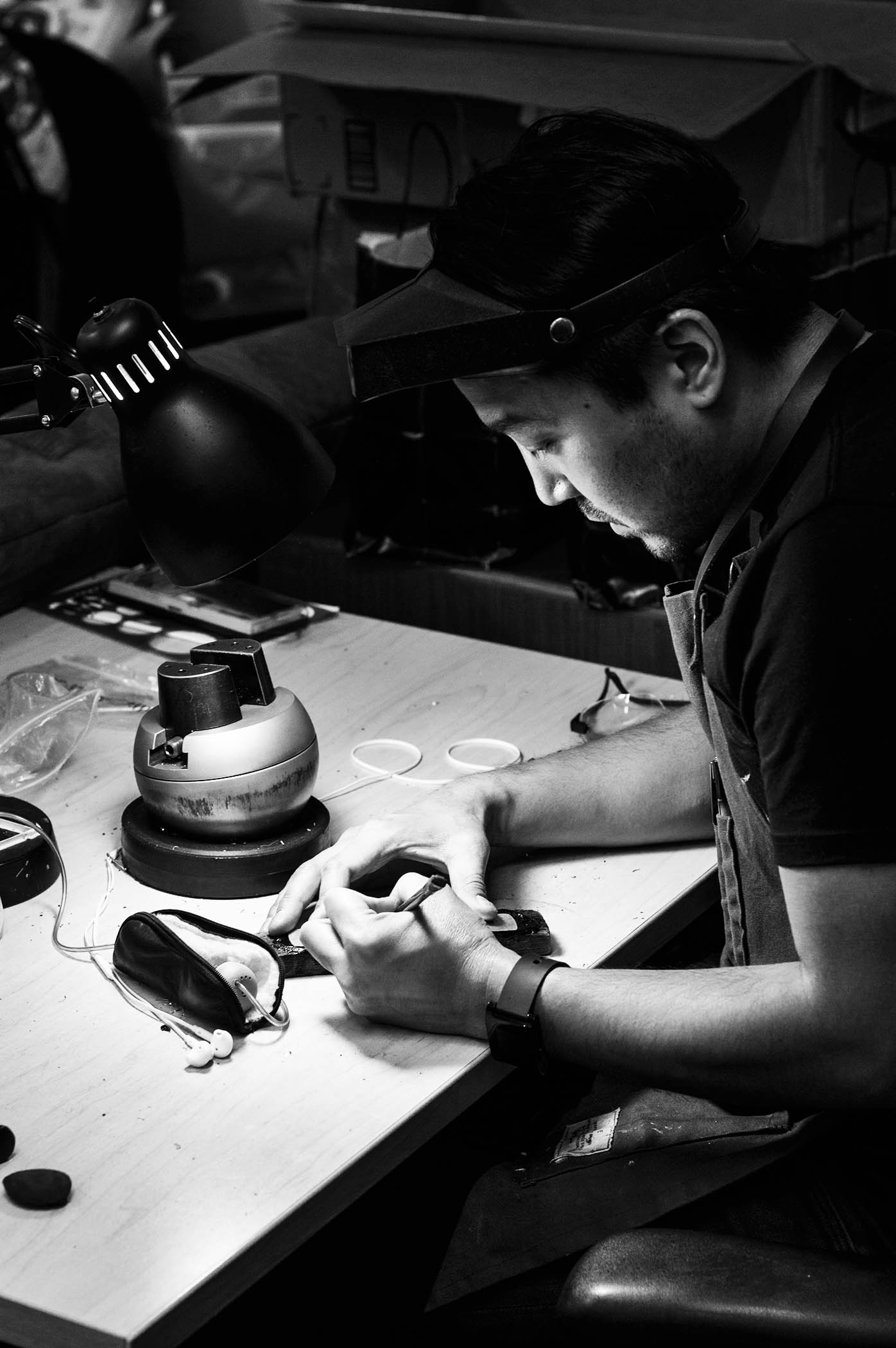Meet the Indigenous Designers Behind Trickster Company, the Innovative Lifestyle Brand from Juneau, Alaska
Rico Worl founded Trickster Company in Juneau, Alaska in 2014, starting with his popular hand-painted skateboards and a successful Kickstarter campaign that funded a unique deck of playing cards designed with Northwest Coast formline art. Rico’s sister, Crystal Worl, joined him as a business partner after earning her Bachelor’s degree in Art and Design.
As Indigenous artisans and designers, Rico and Crystal strive to represent modern Indigenous lifestyles to a broader audience through a distinctive Indigenous artform known as Northwest Coast formline art. They envisioned a business that included a gift shop in downtown Juneau that sold fine art, products for modern Indigenous people to represent their heritage, and products for non-Native people to appreciate without cultural appropriation. As active advocates of diversity in communities, Rico and Crystal Worl also promote diversity through their civic engagement. US Park Pass spoke with Rico and Crystal as a part of our Meet the Artisans of the National Parks series.
“Our crafts and work are about representing our traditional values. Trickster Company started out through street art to reclaim the “gift industry” that was out of our hands and didn’t represent us, as Indigenous people. Trickster Company is our way of authentically representing Northwest Coast formline art.”
Rico and Crystal Worl
Photo by Steve Quinn
USPP: What are the most important values your business embodies?
Rico: Trickster Company started out through street art to reclaim the “gift industry” that was out of our hands and didn’t represent us, as Indigenous people. We preserve and celebrate Northwest formline art, a prestigious and distinctive artform, to explore themes and issues in Native culture in fresh and creative ways that celebrate how Northwest culture is lived today. We strive to live by the core cultural values that we have learned from our ancestors and indigenous traditions. We are taught to integrate the cultural values that are embedded in our ceremonies, stories, and songs into our daily lives. I have benefitted from our value of Wooch Yax, which speaks to respect and integrity in our relationships. Through this value and through living close to family, my grandmother, extended family, and clan members, I benefit from a supportive network.
Crystal: Learning from the past, applying those lessons today, and planning for the future are important values to me. These past few years, I’ve served as an apprentice to Master Artist, Robert Davidson. Robert is a Haida artist, who’s internationally renowned for his Northwest Coast formline art, most notably in carvings and totems. I wanted to invest my time in learning from an artist who would teach me the philosophies and traditions of Northwest Coast formline art and design. This art form is a gift from our past to me and other artists today. Learning the proper techniques and traditions, and sharing this knowledge with others, are important to me. I hope to inspire other artists in the same way that Robert has inspired me.
USPP: What are you most inspired by?
Rico: I come from a rich culture that is living and thriving today. I integrate the lessons I have learned from my heritage into modern life and my art.
Crystal: I am inspired by my family because of their dedicated work ethic and successful business acumen. I have a deep sense of belonging to my family, my clan and our homelands. This deep sense of connection inspires my art. I have countless ideas that are inspired by living in Alaska with my family.
USPP: What do you love most about your craft and what are you most interested in continuing to learn?
Rico: I love learning new methods of production and technology. For example, I am currently teaching myself how to CAD objects in 3D.
Crystal: My craft connects me to my passion, my family, my clan. It motivates me and gives me purpose in life. My craft engages me in the community in a way that I learn more every day. I use it to collaborate, connect, and share with others. Our cultural exchanges are important to my growth as an artist. I am proud of our company and how we impact our community. I love being my own boss and working independently.
USPP: How do you spend time in nature and how does this time inspire your work?
Rico: We live in Southeast Alaska’s rainforest, the traditional lands of the Tlingit that we call Haa Aani. I live every day in the lands my ancestors have lived in for more than 10,000 years or, as our people say, “Since Time Immemorial.” Living and being in this land inspires me. Southeast Alaska is a special and unique place that I am fortunate to work and play in everyday with my family.
Crystal: I spend significant time outdoors, hunting and fishing for traditional subsistence foods for my family. Spending time outdoors and experiencing our environment gives me balance, focus, and inspires my art. I use all the parts of the animal that I receive: For example, I use the fish skin for my art. This circle of life is rewarding and nourishes me physically and spiritually. We have a circle of giving and sharing in our culture that energizes everyone.
USPP: What are some struggles that you have faced as a small business owner and how have you overcome them?
Rico: The scope of a business can sometimes grow in unexpected ways. Having the right people to help—for me it was my family—is key to problem-solving challenges.
Crystal: Being a business owner has exposed my strengths and weaknesses. I’m continuing to learn new skills, including finance, negotiations, and deal-making, that go beyond art. I have several mentors in my life, including Robert Davidson, other artists, and my family, who all help me overcome challenges.
USPP: What is it like to work with your family?
Rico: Our business is owned and operated by our family members. We have a strong bond, with shared core values, and we all become excited about the spirit of a product. We all believe wholeheartedly in what we’re doing. We are all rooted in our traditional core beliefs. Our crafts and work are about representing our traditional values.
Crystal: I work with my family and I collaborate with other artists. Working with them is fun because we are all invested and committed. The stories and art we share represent our family and how we were raised. Our work is rewarding and I have a cool family.
USPP: What do you wish more people knew about your work and the questions they ask you?
Rico: One aspect people seem to miss when they are looking at our work is the fact that we are giving them access to our ancestors and the wealth of multiple generations from time immemorial. Because this art form, Northwest Coast formline, is a gift from our ancestors, our products give people access to those riches. Northwest Coast art provides access to this wealth.
Crystal: Creating art or a design is a multi-dimensional process, from the concept through to prototypes to the actual end product. Communicating the extraordinary amount of energy that goes into our line of products, and that we’re a small family business, is difficult. Whether you’re looking at a face mask, tee-shirt, yoga mat, or cutting board, what you don’t see are the countless decisions that were made and the long hours that were expended, not only by myself but many others too, to create it. What you see and experience has been developed over thousands of years. These facts are near-impossible to explain to those from non-Indigenous cultures. I am asked many questions when I travel to art fairs or pop-ups; providing a brief response, and in a short amount of time, is difficult.
I would also encourage people to think about what they really want to know and their questions before asking artists about their work. Respect for artists, their work, and their time is important. Respecting the ownership of art and intellectual property rights and copyright are necessary. Obtaining permission from the artists before using their art for a tattoo, other wearable art, or other use is also vital. Research how you can support Native artists, Indigenous people, and their businesses. We have a list of indigenous businesses on our website that we ask people to support. Buy Native art and designs from Native people. Please avoid buying Native art and designs from businesses that have culturally appropriated Indigenous designs.


